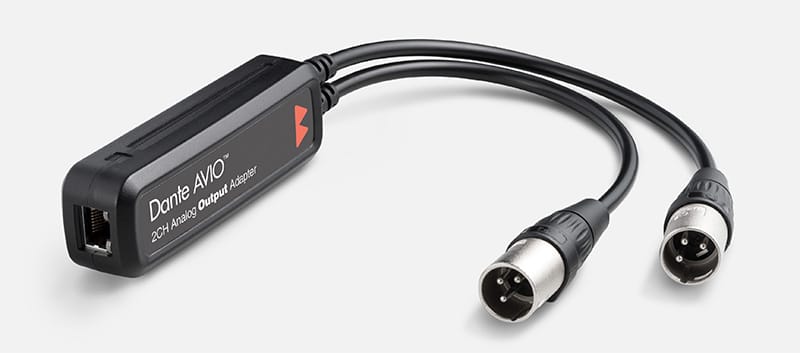
Dante for Dummies
Use this FAQ to discover what this powerful audio networking system can do for you.
Introduced in 2006, Dante (Digital Audio Network Through Ethernet) has become the most popular platform for professional engineers to network audio.
Here, we'll explain what Dante is and how it's commonly used.
What is Dante?
Dante lets you run uncompressed, multi-channel, low-latency digital audio over a standard Ethernet network using Cat 5e or fiber optic cable and simple network Gigabit switches.
"Dante allows you to easily expand your audio and video setup," explains UA Product Specialist Pedro De Sousa. "It doesn’t matter if you want to connect multiple units across whole facilities, studios, or simply connect two devices in your room. Dante is easy to deploy and easy to maintain, giving you near-zero latency and perfect synchronization."
What are the benefits of using Dante?
Sending multiple analog signals over long distances can be problematic. Much less sending it to multiple rooms. Not only does it require a lot of cabling, you'll need to invest in costly buffer amplifiers as well as pay attention to impedance loading issues that cause signal loss — not to mention noise and ground loop hum.
Dante is free from all analog cable loading effects and transmission issues, allowing for cable runs of 100 meters with ease — giving you seamless distribution of audio across a network to multiple destinations at once.
Dante Controller software lets you easily manage complex signal routing.
This is why Dante is most commonly used for complex commercial and broadcasting installations as well as FOH, multi-room recording studios, and houses of worship.
Dante substitutes analog and digital direct connections with software routing, seamlessly transmitting audio channels anywhere on your network with low latency and perfect fidelity.
Do I need a special network to run Dante?
No. Dante doesn't require a dedicated network infrastructure. Any Dante-enabled device can easily speak to another.
If a piece of audio equipment is "Dante-enabled" — like an Apollo x16D audio interface — it's capable of transmitting and receiving audio channels to / from other Dante-enabled equipment.
Can I make my device Dante-ready?
Yes. Whether it's an old-school analog mixer, a powered speaker, headphone amp, or an audio interface, a Dante adapter can bring your favorite gear into the modern age.
If you're looking to grow your production space to multiple rooms, or building a live rig that is truly scalable, Dante is as "plug n' play" as it gets when it comes to networking audio.
— UA Staff


